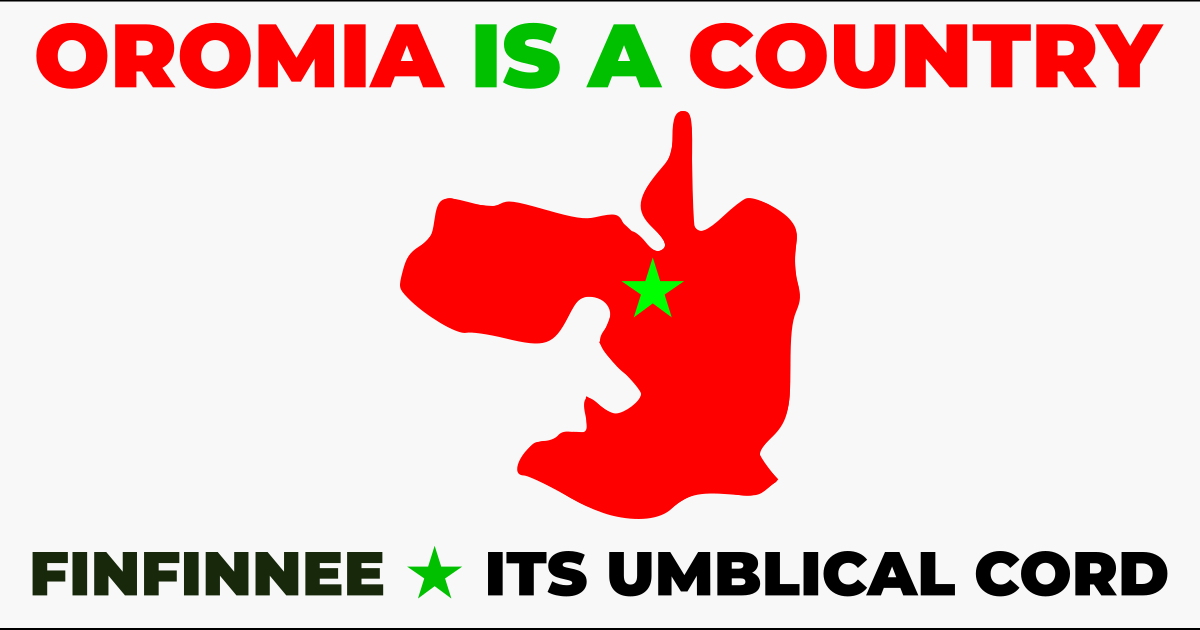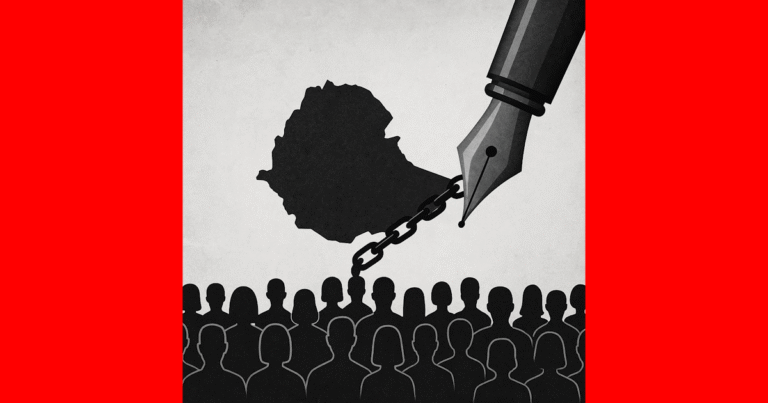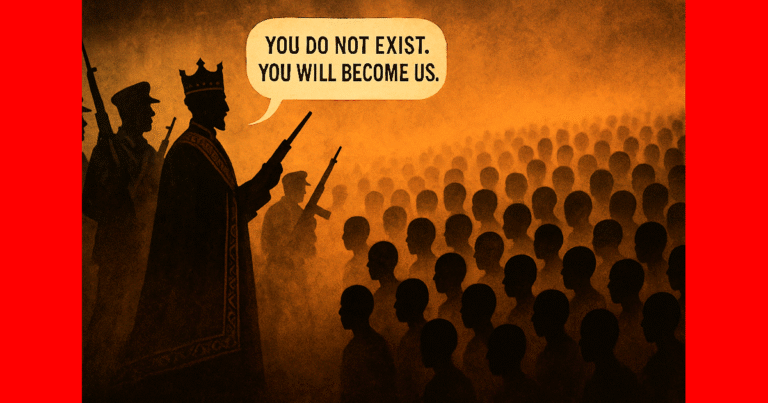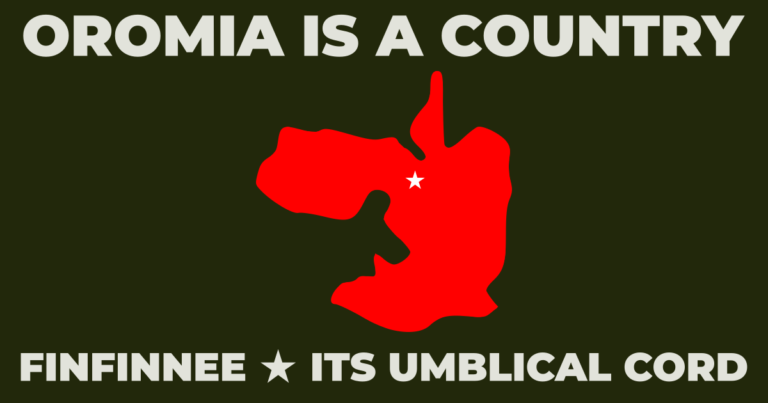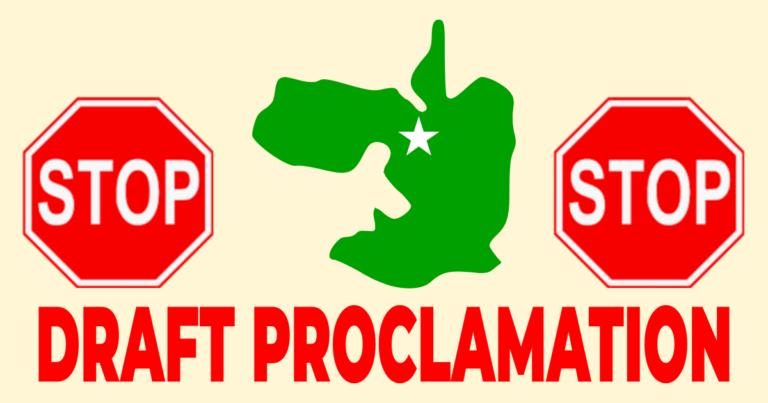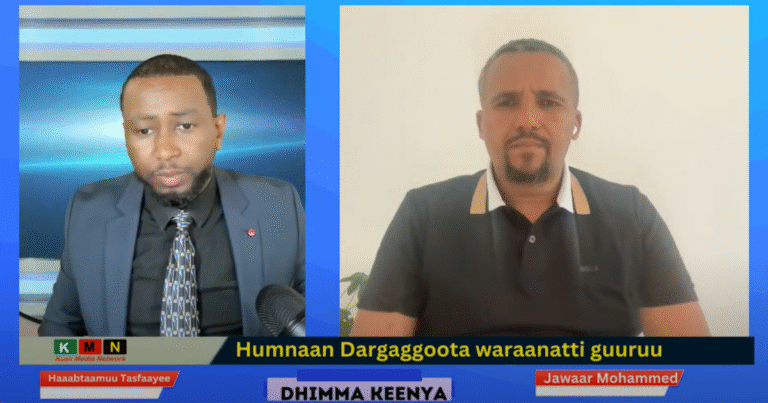A Moral Responsibility for Peace and Justice: The Case for Supporting the Independence of Oromia and Other Annexed Peoples of the Ethiopian Empire
Excerpt: Britain and France played a role—by action or oversight—in the making of the Ethiopian empire through alliances with Abyssinia, enabling the annexation of Oromia and other southern nations. This letter appeals to both governments to help right that wrong by supporting the Independence of Oromia — a peaceful, fact-based path to dignity, stability, and justice.
For clarity and brevity, the letter is presented in two parts: this Plea Letter and an Appendix outlining the relevant historical record.
Historical Overview
At a time when the European powers raced to carve up Africa for their imperial ambitions, Britain and France — whether driven by strategic calculations or short-term diplomatic opportunism — played a pivotal role in shaping a geopolitical anomaly: they helped preserve Abyssinia (modern-day Ethiopia) from colonization. This may have appeared, on the surface, as a rare exception to the tragic sweep of the Scramble for Africa. But in doing so, they helped enable a less visible, yet more insidious tragedy: the violent annexation of millions extending from immediate southern neighbors — a conquest that forged the Ethiopian empire as we know it today. This process is no different from European colonization.
In the late 19th century, Abyssinia’s Emperor Menelik II was positioned by Britain and France as a “civilized and Christian ally,” a buffer against Italian expansion in the Horn of Africa. France directly through arms and training, and Britain indirectly by facilitating arms flow and trade—supplied Menelik with modern weapons, diplomatic support, and international recognition.
These lethal instruments, unbeknown to the annexed and subjugated peoples, became tools of brutal conquest with instant colonization just as the Europeans did. With the unknowing complicity of European powers, Menelik turned these weapons southward. He launched a devastating campaign of annexation into independent nations — most notably Oromia (then referred to as Biyyaa Oromo, or “Oromo Country”), but also Sidama, Wolayta, Somali, and other nations and nationalities.
Entire communities, unaware of the scale of force about to descend upon them, were met with overwhelming firepower. This asymmetric violence led to instant subjugation, mass displacement, massacres, and the erasure of sovereign cultures through forced assimilation — all while Europe watched in silent complicity.
More than the Europeans’, it was Menelik’s conquest — backed by European firepower and marked by even greater brutality — that inflicted the most violent expansion, particularly against the Oromo people. Nowhere was this more evident than in Calii Annollee in Arsii and Calii Calanqqoo in Hararghee, two fierce centers of Oromo resistance where Oromos lost their breasts, limbs, and lives — atrocities committed to instill terror and break the spirit of a defiant people.
The Ethiopian Empire that emerged, and still remains, was an empire built on conquest. Yet, the international community has continued to cloak it in anti-colonial prestige, ignoring the colonial structure within that endures to this day. On the contrary, Abyssinia — which through annexation later evolved into the Ethiopian empire — must be shamed for its active role in the Scramble for Africa, having perpetrated a form of colonization that endures to this day.
For accuracy’s sake, let pro-colonial shame be substituted for the anti-colonial prestige.
The victims of that colonization via annexation — the Oromo people chief among them — have never been granted the moral recognition or political agency due to them. It is now time for a historical reckoning.
The Case for the Independence of Oromia
Britain and France owe not just a historical apology, but a moral responsibility to support the right to self-determination and independence of the Oromo people and other annexed nations. Whether through diplomatic blindness or calculated indifference, their actions contributed to the suppression of vibrant cultures, governance systems, and freedoms. The cost has not been merely historical. It continues today.
The colonization of African territories by Europe and the annexation of southern nations by Abyssinia were not separate phenomena — they were the same event unfolding in parallel. The difference lies in the aftermath: while the rest of Africa has emerged from colonial rule as sovereign states, the territories annexed by Abyssinia remain under internal subjugation, obscured by the myth of a unified Ethiopian empire.
The Ethiopian empire has never been at peace with itself. Its internal contradictions — forged through imperial conquest and sustained by systemic domination — have resulted in cycles of rebellion, repression, and war. From the eras of Menelik and Haile Selassie, to the Derg military junta, to the current regime, Ethiopia has remained a state of perennial instability. No empire can build sustainable peace when it denies its own foundations of injustice. Certainly no development can occur to break the ever persistent poverty.
But there is hope. Oromia is not a threat to peace — it is a pathway to it.
The Oromo people, numbering over 55 million, are grounded in a remarkable indigenous system of governance: the Gadaa system, a democratic, egalitarian model of leadership and societal order that has been studied and admired globally. It is a system rooted in dialogue, accountability, time-bound leadership, conflict resolution, and peaceful power transitions. These values are not relics of the past — they are urgently relevant to today’s fractured Ethiopia and volatile Horn of Africa.
Oromos have already shown the world what peace rooted in culture looks like. The annual Irreechaa celebration, an expression of thanksgiving and spiritual unity, draws millions in Oromia and the diaspora — conducted without violence, with songs of reconciliation, hope, and nature’s blessings. Wherever Oromos gather, they demonstrate a peaceful and visionary people — not seeking vengeance, but dignity and recognition.
The Oromo people are not seeking to destroy a nation, but to reclaim one — a nation where they were never willingly included, only forcefully absorbed. They are not alone. Many of Ethiopia’s southern nations and nationalities share this story, and share this longing.
A radical rethinking is needed. A new geopolitical architecture for the Horn of Africa must be built on justice, not force; consent, not conquest; dialogue, not domination. Independence and self-determination for oppressed nations is not fragmentation — it is the foundation of authentic stability. Modern European nations themselves are proof that independence achieved through self-determination fosters enduring peace. Supporting Oromia’s rights is not just moral repair — it is strategic wisdom.
The world must not wait for the next cycle of bloodshed. Britain and France, in particular, must rise to their moral moment and lend their voices, resources, and diplomatic leverage — to help avert an ongoing tragedy in the short term, and to ultimately support a just and peaceful path toward independence in the region they once, through oversight or convenience, helped entrench in crisis.
The future does not have to be bound by the errors of the past. But healing cannot begin without recognition.
Independence is not a threat to stability — it is its foundation. Ethiopia’s persistent poverty is largely the result of instability rooted in coerced annexation and forced assimilation.
Oromia, if freed to shape its own future, has the resources, vision, and population to become the Britain, the France, or the Germany of Africa. We have been held back for over 130 years — help us break free, so we may rise and contribute to a peaceful, prosperous region.
Let Oromia and all annexed peoples be free — not through bullets or bitterness, but through honest dialogue, international support, and the rightful restoration of dignity.
What You Can Also Do to Avert Ongoing Tragedies
The Oromo Liberation Army (OLA) has consistently shown openness to negotiated peace, attending talks in Tanzania in both April (in Zanzibar) and November (in Dar es Salaam) of 2023. Unfortunately, both rounds collapsed due to the Ethiopian government’s intransigence and lack of genuine commitment. It has become increasingly clear that for the ruling party, negotiation is viewed not as a mutual process of compromise, but as a means to demand unconditional surrender. This posture, rooted in a desire to cling to power at all costs, has left no room for meaningful dialogue.
Given this context, in the short term, we respectfully appeal to the British and French governments—not only as historical partners with influence in the region, but also as defenders of democratic values and human rights. We urge you to take practical, concerted action to help bring an end to the human tragedy unfolding in Oromia. Specifically, your governments must impress upon the Ethiopian authorities that genuine negotiations—not public posturing—are the only path toward sustainable peace. The current state of affairs is unsustainable, and silence or neutrality only emboldens further repression. Your support can help tip the scales toward justice and lasting peace.
In Conclusion…
The failure of the Ethiopian government to engage in earnest negotiations underscores the urgency of international action. Britain and France, with historical influence and diplomatic reach in the Horn of Africa, are uniquely positioned to make a difference. What is needed now is not more rhetorical support, but decisive diplomatic pressure — aligned with the principles of justice, self-determination, and human rights.
True leadership today demands a fresh approach to geopolitics: Britain and France can prove their moral courage by backing Oromia’s principled, evidence-backed pursuit of freedom — transforming an outdated status quo into the foundation for lasting peace and stability in the Horn of Africa.
Let this be the moment global powers trade realpolitik for moral responsibility — by backing honest dialogue and Oromia’s rightful independence, Britain and France can replace bullets with ballots and subjugation with dignity, securing a just and lasting peace in the Horn of Africa.
Appendix: Factual Summary in Support of the Moral Case for Self-Determination of Oromia and Other Annexed Nations
1. The Scramble for Africa and the “Civilized Ally” Exception
During the Berlin Conference of 1884–85, European powers carved up Africa with little regard for indigenous sovereignty. Ethiopia (then Abyssinia), however, presented a unique case:
- It had a centralized Christian monarchy with a bureaucratic/aristocratic tradition.
- It maintained long-standing ties with Europe and held a quasi-biblical allure for Christian powers, projecting itself as a “Christian island” in a sea of perceived heathenism.
- Abyssinia’s Christian rulers, by portraying themselves as a “Christian island,” positioned themselves above surrounding African societies, who were labeled as “heathens” — both by European powers and by Abyssinian imperial ideology. This self-characterization played a crucial role in establishing and maintaining diplomatic ties with Western powers, particularly from the Menelik era onward.
- Most critically, it selectively modernized — importing arms, hiring foreign advisors, and playing rival European powers against one another.
In the mindset of the Scramble for Africa, being perceived as “civilized” and “Christian” were the two main criteria for diplomatic legitimacy in European eyes. As such, Emperor Menelik II was seen as a “civilized and Christian ally” rather than a colonization target — a perception that proved pivotal in Abyssinia’s avoidance of colonization, at least until Italy’s failed attempt at Adwa.
2. A Strategic Buffer Against Italy
Following the Berlin Conference, Italy — the newest European colonial player — was encouraged to expand from the Red Sea coast (Eritrea) inland. However, its territorial ambitions clashed with Abyssinia’s.
- Britain saw Abyssinia as a strategic buffer protecting its Nile interests in Sudan and countering French and Italian advances.
- France, in rivalry with Italy in the Mediterranean, also had no interest in seeing Italy dominate the Ethiopian Highlands.
Consequently, both Britain and France quietly aided Menelik, arming him and supporting his legitimacy, especially before the pivotal Battle of Adwa in 1896.
That victory — widely celebrated as an African triumph — also had the unintended effect of validating Menelik’s sovereignty in the eyes of Europe, giving him a free hand internally.
3. Menelik’s Diplomatic Maneuvering
Menelik proved a master of diplomacy, using divide-and-conquer tactics among colonial powers:
- He signed competing treaties with Britain, France, and Italy — extracting arms and diplomatic favor while sowing distrust among them.
- He persuaded Britain to recognize his annexed dominion over the southern and western regions (including Oromo lands) in exchange for aligning with British interests around the Nile.
- He balanced French support to neutralize excessive British leverage.
These moves turned Menelik into an imperial proxy — but one who used European support to build his own empire, expanding deep into Oromo, Sidama, Somali, and other non-Abyssinian territories.
4. The Irony of Anti-Colonial Icon, Internal Colonizer
Though Ethiopia escaped external colonization, its internal dynamic was unmistakably colonial:
- Military conquest subdued Oromo, Sidama, and other peoples in campaigns mirroring European colonial brutality.
- Annexed territories were made subordinate to a central empire dominated by the Amhara elite.
- The rhetoric of Christianity and “civilization” justified linguistic suppression, forced assimilation, and the destruction of indigenous governance — notably the Gadaa system of the Oromo.
In effect, European protection enabled Abyssinia to become an African empire, still shaping Ethiopia’s fractured structure today.
5. Modern-Day Ramifications
This colonial legacy has profound and unresolved consequences:
- The Ethiopian state was founded not on voluntary unity, but on conquest and forced assimilation.
- Today’s political unrest, demands for federalism, and nationalist struggles stem from this imperial foundation.
- The narrative of Ethiopia as an uncolonized symbol of African pride masks an internal colonial reality — especially in its treatment of southern nations and nationalities.
- The colonization of African territories by Europe and the annexation of southern nations by Abyssinia were not separate phenomena — they were the same event unfolding in parallel. The difference lies in the aftermath: while the rest of Africa has emerged from colonial rule as sovereign states, the territories annexed by Abyssinia remain under internal subjugation, obscured by the myth of a unified Ethiopian empire.

